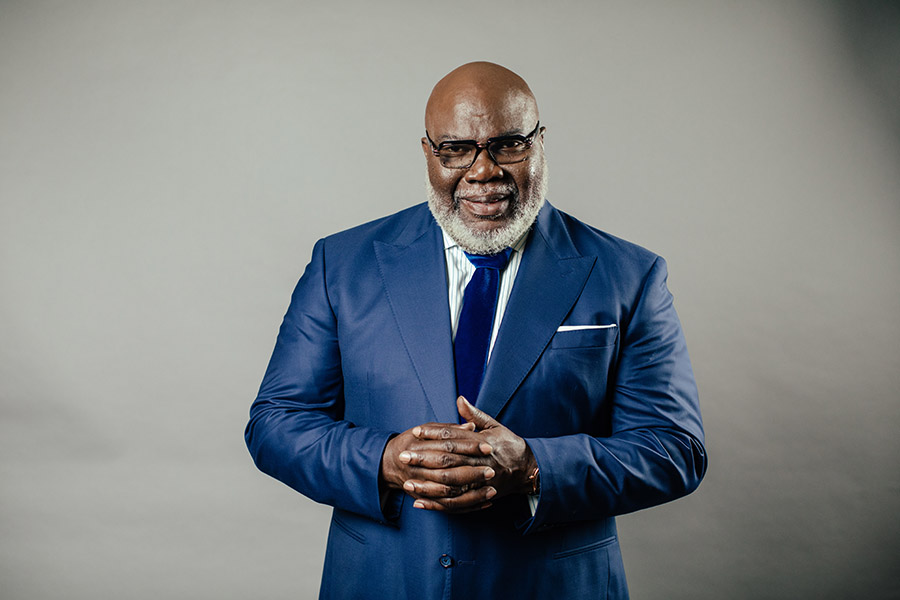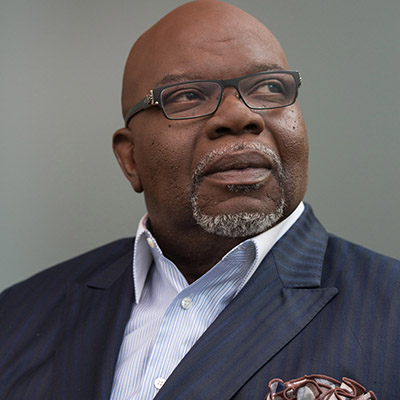Real Leaders: What can business leaders do to promote peace without it becoming too partisan?
T.D. Jakes: Business leaders are uniquely positioned to become forces for good and positive change in their communities and throughout the country in a broad spectrum of areas. Many communities have benefited immensely from the work of business leaders who use their vast talent and clout to champion civic, educational, charitable, and humanitarian causes.
Inequality is the soft underbelly of our nation. The United States has deep inequalities in many areas, including housing, education, healthcare, and criminal justice. These are issues that continue to marginalize and frustrate communities. They are leading triggers of crime, violence, illiteracy, and unrest. As Dr. Martin Luther King said, “Riots are the voice of the unheard.”
Business leaders can enhance peace in their communities and almost anywhere by proactively addressing issues of inequality. They could begin by addressing wage inequality at their own companies. People of color make less overall than their White counterparts for doing the same work. According to the Society of Human Resource Management, Black men make 87 cents for every dollar made by White men. Among Hispanic men, it is 91 cents for every dollar earned by White men.
In addition, business leaders could develop creative strategies to provide gainful employment to the recently incarcerated, arguably the most marginalized group in our society. The United States incarcerates more people than any other country on the planet. Most of these returning citizens find it impossible to re-enter society because their records deny them access to housing and jobs, putting them on a path to recidivism.
In many communities, business leaders sit on civic and community boards and champion charitable causes. And that is as it should be. But there are emerging opportunities to serve in ways that could have ramifications for peace. A growing number of communities have civilian oversight committees that police the work of law enforcement agencies. Business leaders could play a critical role here by sitting on these committees and looking for issues of wrongdoing or disparities in law enforcement.
What leadership traits are needed in the 21st century?
Many of the traits that have helped leaders and their organizations thrive for centuries will serve us well in the 21st century. However, I believe there are some that we need to pay attention to now more than ever. These include:
Adaptability. Our society is evolving rapidly. There are some things we can foresee: collapsing industries, disappearing jobs, an increasingly fragile environment, and an education system that appears to struggle with meeting the needs of our children or competing with other advanced countries like China and Scandinavian nations like Norway and Finland. Then there are the unexpected — like the pandemic, the worst in more than a century. The pandemic brought the best out of many leaders by forcing them to pivot. Many of the nation’s most prominent colleges and universities shut down their campuses but found a way to continue to engage stakeholders through teaching, research, and service. Many of our largest corporations took a similar approach.
Inclusivity. Our nation is more diverse than it’s ever been. A great 21st century leader must have the ability to work with people from all backgrounds — racial, ethnic, nationality, physical or mental ability, and all kinds of life experiences. The last 60 years have taught us that our greatest strength as a nation is our diversity. But it is not enough to merely hire a diverse team. You must be strategic and purposeful in utilizing them, including their voices in key decisions, and giving them seats at the table for the betterment of the organization. Remember, diversity invites a person to the party; inclusion asks them to dance. Leaders who fail to embrace differences do so at their peril.
Character. Many recent scandals, including the Me Too movement and well-documented instances of improper behavior, have pushed character back to the top of the list of desired traits for leaders. Character is synonymous with trustworthiness. It is symbolic of good leadership, integrity, and honor. A leader’s character can sink or buoy an organization’s reputation.
Visionary. The most successful leaders in the 21st century are those who can see around the corner and look far into the future. But it’s one thing to have a vision; it’s another to communicate that vision and inspire your team. Your ego must be sturdy enough to withstand all kinds of feedback about your vision. And you have to show the members of your team that you care enough about them and take a personal interest in them to solicit their feedback. Engaging with employees is critical to morale and company success.
What new work opportunities and jobs could help promote peace?
According to the National Alliance on Mental Illness, one in five adults experienced mental illness in 2020. Let that sink in. We’ve had many instances in recent years in which mentally ill individuals were needlessly shot in confrontations with police, leading to tension in that community. Mental health workers could play a huge role in de-escalating some of these confrontations by educating and guiding authorities. Social workers, too, are some of our nation’s great unsung heroes. They are advocates, champions who help people overcome many of life’s toughest challenges, such as poverty, discrimination, addiction, re-entry and recidivism issues, unemployment, and disability. They play a critical role in averting crises. We live in an age in which the ranks of the marginalized are increasing steadily. Social workers will play an essential role in helping meet the needs of these groups and serving as their bridge to society. Consider approaching mental health or social workers to advise your board or help with your social impact strategy.




































